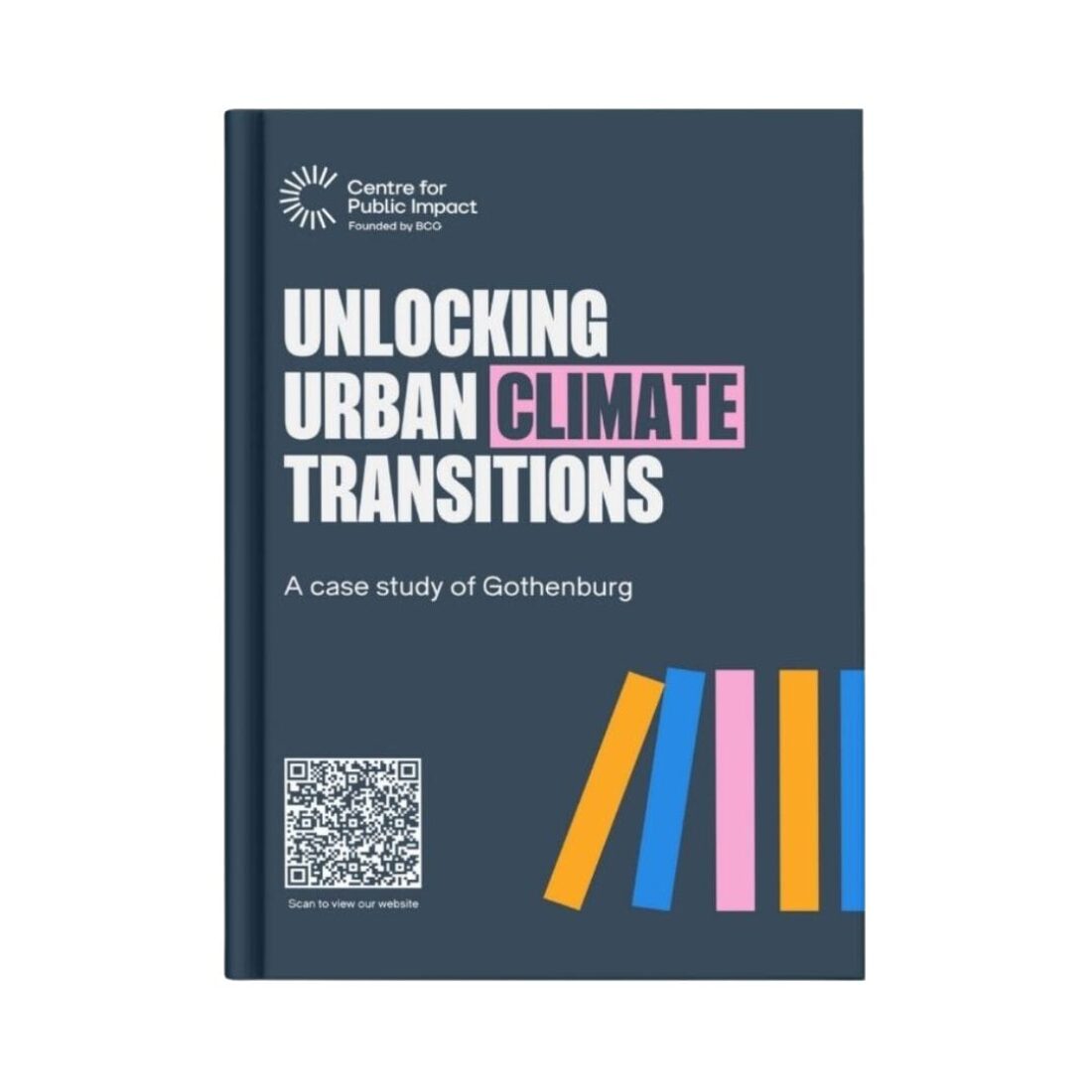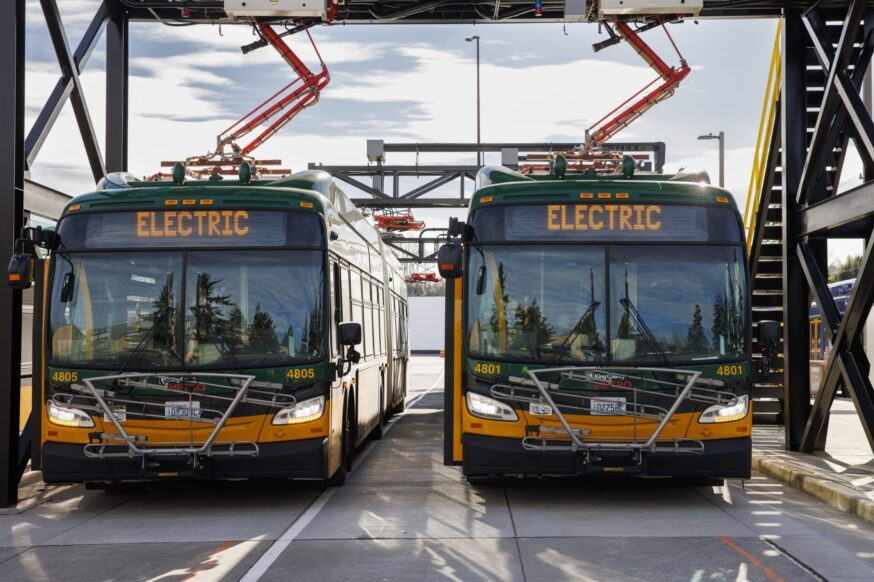Recognise the barriers to urban transitions and lead in climate action
Cities account for over 70% of global greenhouse gas emissions, making the shift to sustainable energy in urban areas critical for achieving climate goals.
Despite ambitious targets, many cities face deep obstacles in transitioning to carbon neutrality. There is an urgent and intense need to understand these obstacles, remove them, and improve support structures for cities.

Learning from Gothenburg’s climate journey
Municipal climate action is falling short, with obstacles preventing decision-makers from pursuing necessary reforms and instead opting for a “business as usual” approach – tinkering at the edges of the city system instead of transformation.
This report, created with Carl Mossfeldt, explores how political, economic, and historical factors shape cities’ climate journeys. Using Gothenburg as a case study, we highlight key barriers to urban climate transitions and offer insights to inspire cities to find innovative solutions for a sustainable, resilient future.
What’s Holding Cities Back?
The Unlocking Urban Climate Transitions report highlights four key obstacles cities face:
- Lock-ins: Political and administrative processes risk becoming entrenched, reinforcing the status quo.
- Capabilities: New skills are needed to adapt to ever-evolving climate challenges.
- Risk Sharing: Alliances between levels of government and the private sector are required to manage transition risks.
- Incentives: It’s easier to focus on smaller, easy changes, instead of building new, system-wide solutions.
The way forward: Unlocking ambitious urban climate action
Building on Gothenburg’s experience, the Unlocking Urban Climate Transitions report highlights three key strategies that cities can adopt to overcome obstacles and drive bold climate action:
- Collaboration – Build new coalitions of diverse stakeholders to assess risks and imagine sustainable futures.
- Capability building – Assist municipalities in developing the skills and partnerships to address local and global challenges.
- Regulatory reform – Introduce policies and incentives that drive bold but necessary climate action.
By embracing these strategies, cities can pave the way for bold climate action and a sustainable, resilient future.
Want to have a conversation about urban climate action?
Recognising shared challenges across cities helps us uncover new pathways to create resilient, transformed futures for our urban areas.
If you have reflections on your own city, want to co-create solutions, or discuss urban climate action further, we are always interested in hearing reactions, thoughts, and ideas.







